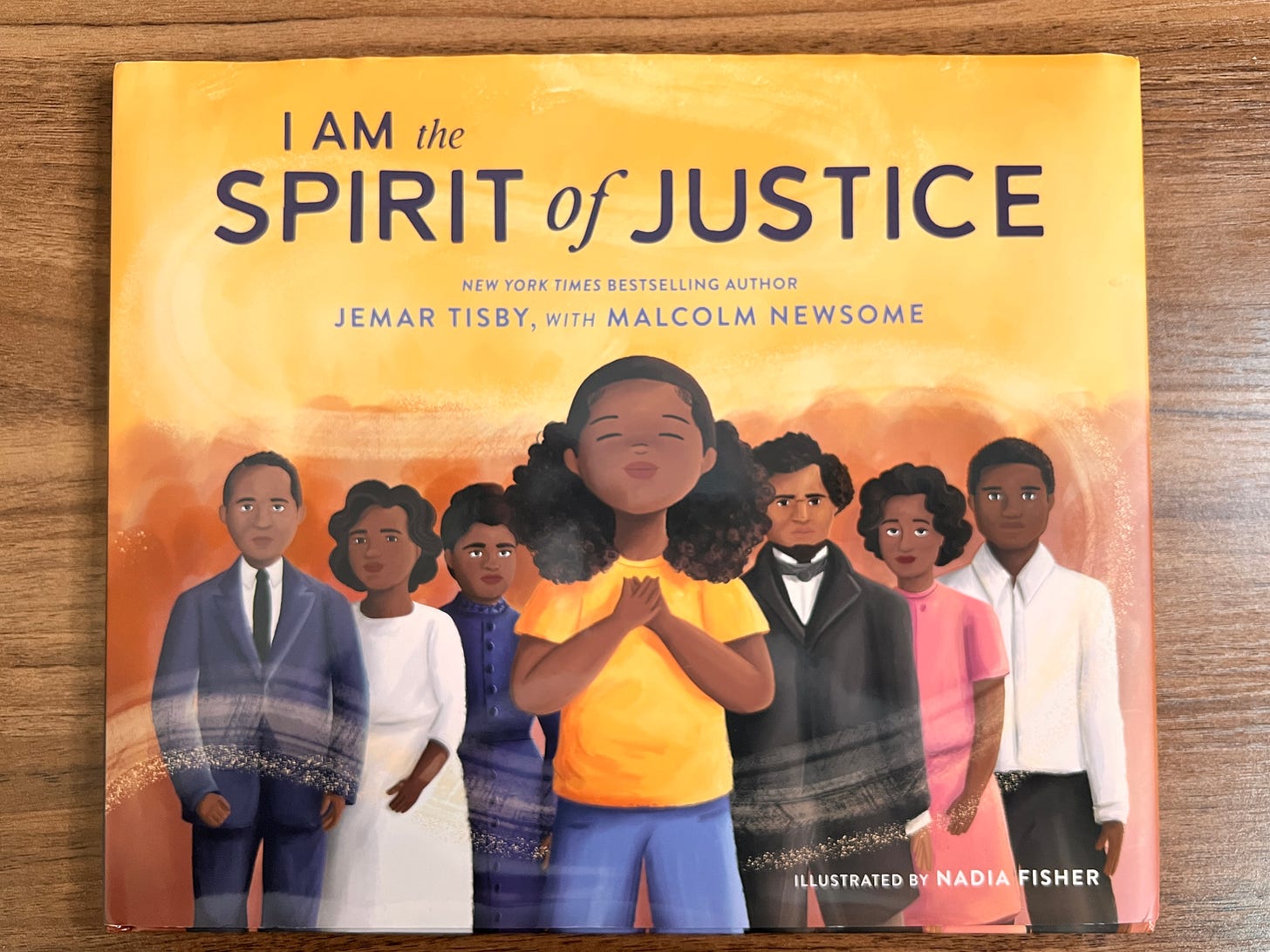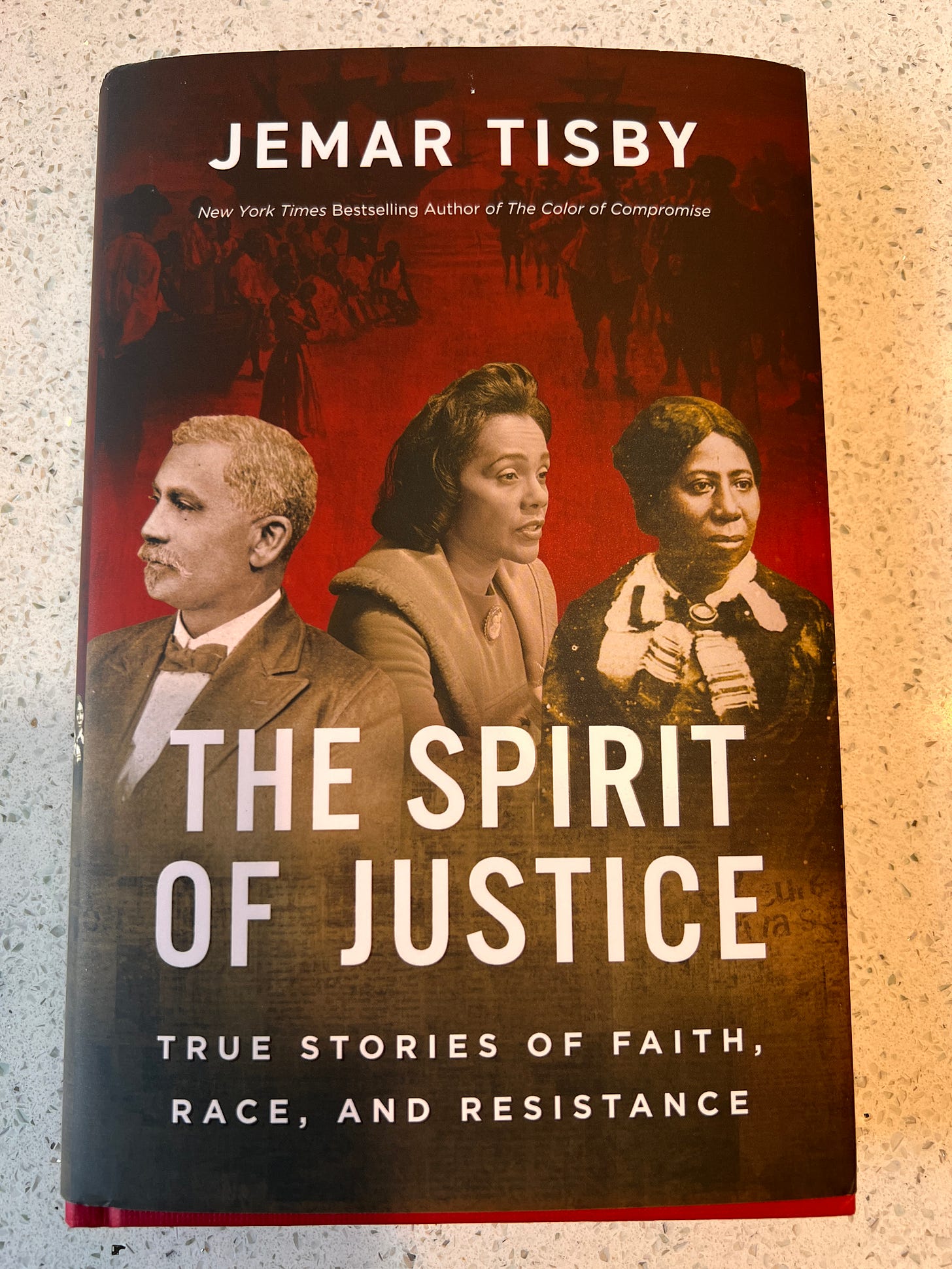Justice for All Ages
How to Spark Conversations About Justice with Every Age Group
You could go to sleep this evening knowing that you had already taken a meaningful step toward justice if you do one simple task: Become a paid subscriber today. Happy New Year!
The beauty of childhood is the innocence and possibility it brings.
Children explore the world with curiosity, amazement, and a sense of trust that makes them effervescent.
As adults, we want to extend this age of innocence as long as possible. We dread the day children will experience their first betrayal, their first heartbreak, their first rejection.
Unfortunately, injustice does not wait for children to reach a certain age before it affects them.
Children are born into an unjust world, and as much as we adults are charged to protect them and make the world a less scary place, we must also prepare them.
Justice is for all ages.
For adults, exploring justice may lead to deep conversations about history, ethics, and current events.
But for children, justice often begins with a simpler, more intuitive understanding: fairness. Sharing. Standing up for others.
These seeds, planted early, can grow into a lifelong commitment to creating a more equitable world.
How will you start or continue the conversation about justice with the children in your life?
Justice Is an Intergenerational Conversation
Justice is an intergenerational conversation.
It takes place between older people who have studied and worked for justice and can pass their wisdom on to the younger generations.
The dialogue flows from younger to older as well.
Young people offer imaginative solutions, apply new technology, tap into the current culture, and provide energy and fearlessness that inspires older people.
As important as these conversations are, they can be hard to start or continue.
You want to present enough information to be helpful, but not so much that young people will get scared or intimidated.
You want them to understand the obstacles they will face working for justice, but also be inspired by positive examples of courage and resilience.
It always helps to have resources to spark dialogue, but those can be in short supply.
I’ve been a 6th grade Science and Social Studies teacher. I’ve been a middle school principal.
As a former children’s educator, I wish I had access to more age-appropriate books about justice and history to spark meaningful conversations about justice.
Toni Morrison said, “If there's a book that you want to read, but it hasn't been written yet, then you must write it.”
So I wrote the book. Two of them, actually.
Justice for All Ages
I Am the Spirit of Justice introduces early readers (ages 4-7) to the idea of justice through vibrant illustrations and simple yet rich stories. It helps them recognize that acts of justice aren’t for the few, they carry within them the same spirit to make positive change.
The picture book helps lay the foundation for children to learn that fairness, kindness, and courage are values to celebrate and practice.
For middle-grade readers, Stories of the Spirit of Justice dives deeper. These narratives showcase the true stories of history makers who worked for a better world. These stories not only educate but also empower kids to believe in their own ability to create change.
For tweens, these stories of resilience and resistance demonstrate that standing up for what’s right isn’t limited by age. Kids of any age can think critically and act boldly.
The Spirit of Justice serves as source material for both kids’ books. This grown-up version (also good for high schoolers) equips readers with historical context and real-world examples to inspire the work of justice today.
Children are never too young to start learning about justice. In fact, the earlier we introduce them to these concepts, the more likely they are to take root and shape how young people interact with the world.
On January 7, we’re officially launching these books. That’s just one week away!
You can help spark generational change by takin one simple action:
Pre-order the books!
Extra Credit: Share this article on social media using #JusticeForAllAges
Justice Is a Daily Practice
Justice isn’t just a lofty ideal; it’s a daily practice.
It’s in the way we treat others, the stories we tell, and the actions we take.
By introducing young readers to justice through these books, we’re not just sharing information—we’re shaping the next generation of changemakers.
Together, let’s embrace justice for all ages. Let’s make fairness, courage, and resistance part of the fabric of our families, schools, and communities.





Pre-ordered both! Thank you for your work.
Our grandchildren are ages 11, 14, 16, 18. So we’ll start with all three books and encourage them to self-select. We can give the youngest book to the public or school library.